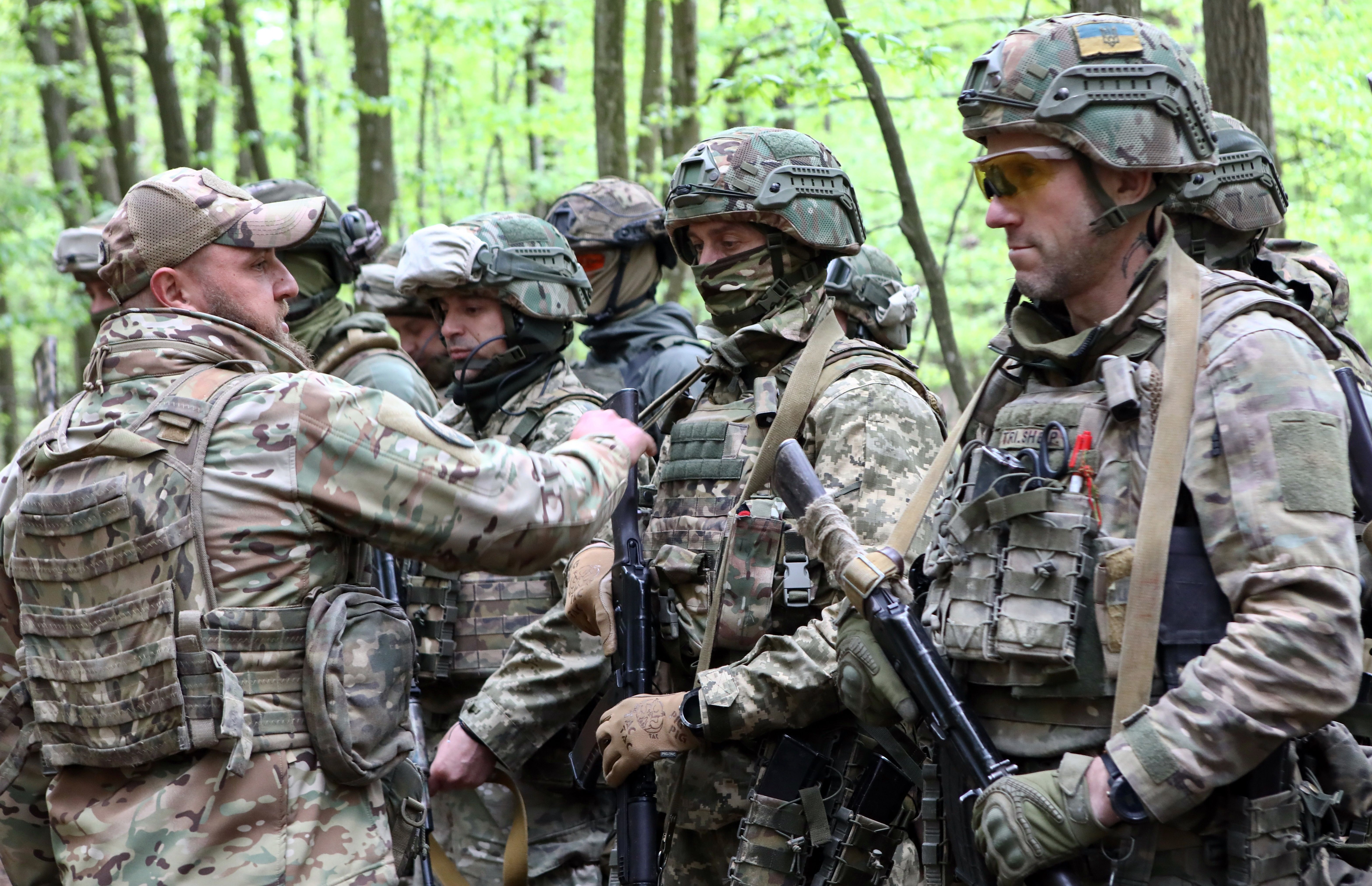If Washington were intentionally to design a formula for Ukraine’s destruction, it might look a lot like the aid package passed by Congress this week.
Of course, that is not the impression one gets from celebratory reactions to the legislation in Ukraine, Congress, and the media. The package “sends a unified message to the entire world: America will always defend democracy in its time of need,” said Senate Majority Leader Chuck Schumer (D-N.Y.).
“This support will really strengthen the armed forces of Ukraine,” commented Ukrainian President Zelensky, adding, “and we will have a real chance at victory.”
"We will stand with Ukraine until victory is won," proclaimed House Minority Leader Hakeem Jeffries (D-N.Y.).
Such triumphalism is misplaced. The package includes enough military and economic support to sustain Kyiv’s hopes for a few more months, but nowhere near enough to defeat Russian forces. Of the roughly $61 billion it allocates, $14 billion is reserved for procuring weapons for Ukraine, and it includes an additional $8 billion in financial support to help keep the Ukrainian government afloat. The bulk of the package, however, will go toward replenishing America’s own diminished military stockpiles — which will take years to accomplish — and funding its broader operations in the region.
Some of Ukraine’s more sober-minded supporters concede as much. The package “will provide both a materiel and morale boost,” according to Washington Post columnist Max Boot, but “much more needs to be done. To wrest the battlefield advantage from Russia and to convince its dictator that he cannot win his cruel war of conquest … more U.S. aid will be necessary in the future.” Those hailing the package see the new aid as a holding action, staving off a collapse of Ukraine’s lines and buying time for the West to ramp up military production. This would allow Ukraine new opportunities to regain the offensive in 2025 and beyond.
This optimistic view ignores a discouraging reality, however. The package will not bridge the enormous gap between Russia’s artillery, bomb, and missile production and that of Ukraine and its Western supporters, because the West simply lacks the manufacturing capacity to meet Ukraine’s massive needs, and this will be the case for many years to come. Congressional funding can enable procurement orders, but it cannot create machinists and other skilled workers necessary to man new factories. And it cannot address the enormous manpower disparity between Ukraine, whose birth rate has plunged to one the lowest in the world, and Russia, which has almost five times the population and one of the highest birth rates in Europe.
Moreover, one key to the success of such a long-term approach is America’s own ability to provide Ukraine with large aid packages for many years to come. But the controversies in Congress over this package, coupled with trends in opinion polls that show growing American public skepticism about the war, strongly suggest that such largesse is not politically viable for much longer.
Additional aid would be justified — indeed, it would arguably be required — if it were to be used as leverage in a broader diplomatic strategy for negotiating a compromise settlement of the war that would secure Ukraine and allow its reconstruction while addressing Russian security concerns. But it is tied to no such strategy. The fact that the new aid package includes language requiring the Biden administration to articulate a strategy within 45 days after enactment is a testimony to its absence.
Does the White House intend to pursue negotiations after the November elections, when it might have greater political room to deal with Russia? Does it indeed believe that Ukraine can ultimately drive Russian forces off all of its territory, even though its counteroffensive clearly failed in 2023, when it had significantly more troops and weapons? Or does it intend to be Ukraine’s military benefactor for many years to come, keeping fingers crossed that it can maintain a battlefield stalemate or that Russia will break before the much smaller and much poorer Ukraine collapses?
Absent answers to these questions, the new aid is spending that lacks a coherent plan for making it effective. That makes it a formula for prolonging, not ending, the war. It will almost guarantee that Ukraine will continue throwing its dwindling reserves of manpower into a war it cannot win, and which is wreaking ever more havoc on Ukraine’s infrastructure and its prospects for future prosperity. It will amount to both a waste of money and, even more disturbingly, a waste of Ukrainian lives.
















